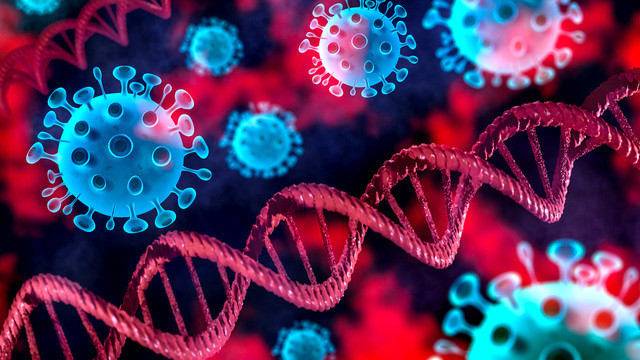From the very beginning of the pandemic, it has been clear that people experience the disease differently, not only due to age and certain diseases, but also genetic factors. Researchers at the Karolinska Institute in Sweden figured out which ones.
 2754
2754
Back in 2020, scientists managed to find a gene that we inherited from Neanderthals: it greatly increases the risk of respiratory failure and death. Along with this gene, we also received protective genes from our extinct relatives, which reduce the risk of getting on a ventilator by 20%. They regulate the activity of an enzyme that breaks down viral genomes.
It was believed that both of these sections of DNA were distributed mainly among Europeans, since they appeared in people after an ancient migration from Africa, when the first travelers who mastered prehistoric Europe met the Neanderthals who inhabited it. The “protective” variant has become widespread among humans over the past ten thousand years, and now almost half of all people outside of Africa have it.
Until recently, it was not known which gene variant protects us from the coronavirus. To find out, scientists compared the DNA of Africans with Europeans. In theory, the former should have less protection against COVID-19. However, no significant was found.
“The fact that Africans had the same protection as Europeans allowed us to identify a unique DNA variant that actually protects against COVID-19 infection,” says Jennifer Huffman, lead author of the study.
It turned out that the rs10774671-G gene variant provides serious protection against the severe course of the coronavirus. It determines the length of a special protein that can destroy the SARS-CoV-2 virus. The longer version of this protein works much more efficiently.
As part of the analysis, scientists tested the genes of 2,787 African-descended hospitalized COVID-19 patients, with nearly 131,000 participants in six non-African cohort studies included controls.
“Our research shows how important it is to include people from different backgrounds. If we had studied only one group, we would not have been able to identify the gene variant, ”says one of the authors of the study Hugo Seberg, an assistant professor at the Karolinska Institute. Scientists believe that the discovery will allow the creation of more effective therapy and the development of new methods of treatment.
